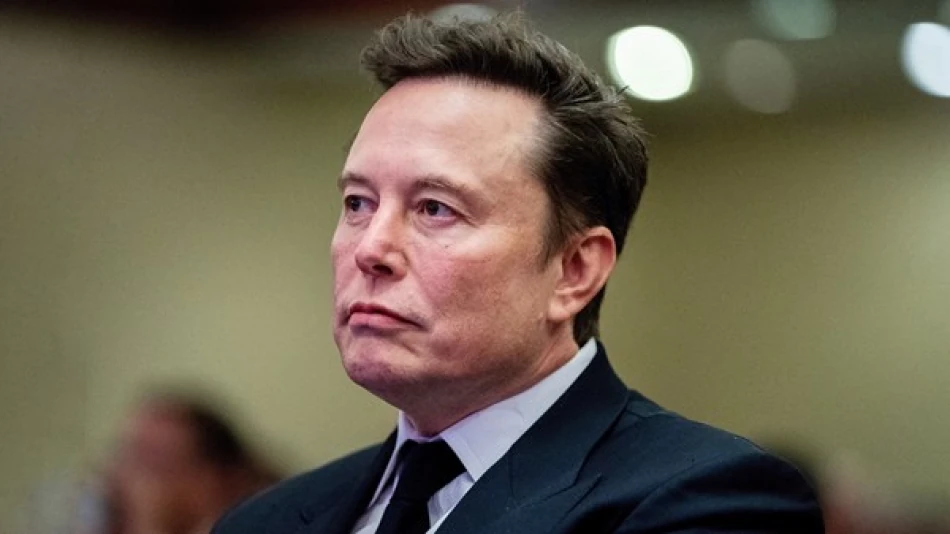
Elon Musk to Sue Apple Over App Store Policies, Sparking Tense Standoff in Tech Industry
Musk's xAI Threatens Apple with Antitrust Lawsuit Over App Store Rankings
Elon Musk's AI startup xAI is preparing legal action against Apple, alleging the tech giant manipulates its App Store rankings to favor OpenAI's ChatGPT over competing artificial intelligence applications. The billionaire's accusations highlight growing tensions in the AI market as companies battle for consumer attention and platform visibility.
The Core Allegation: Systematic Favoritism
In a post on X (formerly Twitter), Musk accused Apple of "making it impossible for any AI company other than OpenAI to reach the top spot in the App Store," calling this behavior a "blatant antitrust violation." The timing of these accusations coincides with intensifying competition in the consumer AI space, where app store visibility can make or break a product's success.
Current App Store data supports Musk's frustration, if not his legal theory. ChatGPT holds the number one position in the "Top Free Apps" category on Apple's U.S. iPhone App Store, while xAI's Grok chatbot ranks fifth. Google's Gemini AI assistant sits far behind at 57th place, according to analytics firm Sensor Tower.
Apple's Strategic Partnership Creates Conflict of Interest
The crux of Musk's complaint lies in Apple's deepening business relationship with OpenAI. The companies have forged a partnership that integrates ChatGPT directly into Apple's devices and operating systems, creating what competitors view as an unfair advantage. This integration gives ChatGPT privileged access to Apple's ecosystem while potentially limiting opportunities for rival AI services.
Such partnerships aren't unprecedented in tech history. Similar arrangements between platform owners and preferred partners have drawn regulatory scrutiny before, from Microsoft's browser bundling in the 1990s to Google's search deals with device manufacturers.
Market Dynamics and Regulatory Implications
The AI chatbot market has become a critical battleground for tech supremacy, with billions in investment flowing into companies racing to capture user adoption. App store rankings directly influence download rates and user acquisition, making platform neutrality a significant competitive concern.
For investors and market watchers, this dispute signals broader tensions around platform control in the AI era. Apple's App Store generates substantial revenue through its commission structure, and the company has historically faced criticism for allegedly favoring its own services or preferred partners in search results and recommendations.
Legal Precedent and Likelihood of Success
Musk's antitrust claims face significant legal hurdles. U.S. courts have generally given platform owners considerable discretion in managing their marketplaces, though recent regulatory trends show increased scrutiny of Big Tech's gatekeeping power. The European Union's Digital Markets Act and similar legislation worldwide reflect growing concern about platform favoritism.
However, proving systematic manipulation of app rankings requires demonstrating that Apple's algorithms deliberately suppress competitors rather than reflecting genuine user preferences and engagement metrics. ChatGPT's dominant position could simply reflect its first-mover advantage and superior user adoption rates.
Industry-Wide Implications
This confrontation extends beyond a simple business dispute. It represents a broader struggle over who controls access to consumers in the AI revolution. As artificial intelligence becomes increasingly central to smartphone functionality, the companies that control mobile platforms wield enormous influence over which AI services succeed or fail.
The outcome of any legal action could reshape how platform owners manage their digital marketplaces and whether they can maintain exclusive partnerships without triggering antitrust enforcement. For the AI industry, it may determine whether innovation comes from established platform partnerships or competitive market forces.
Most Viewed News

 Layla Al Mansoori
Layla Al Mansoori






